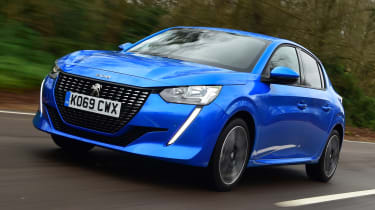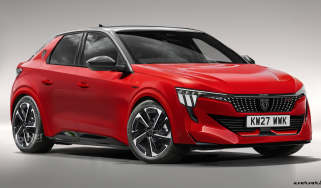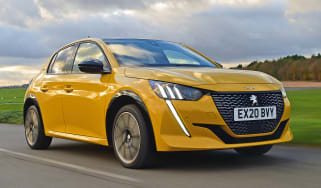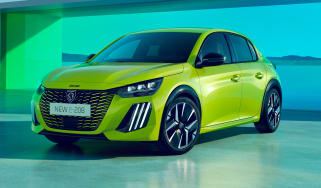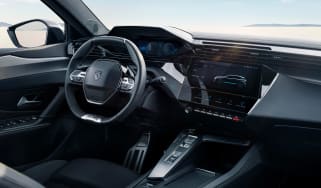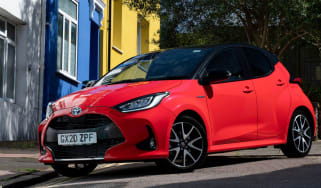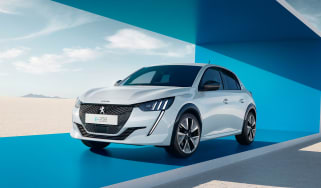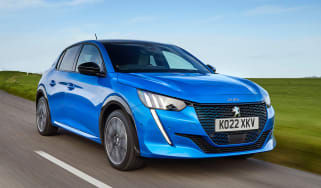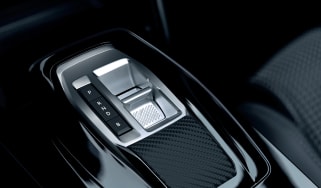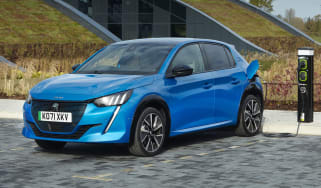Peugeot 208 hatchback review
“The Peugeot 208 hatchback is a modern, stylish supermini with a future-proof engine range, but it’s a shame it’s not more fun to drive”
Pros
- Striking design
- Nippy petrol model
- Electric version available
Cons
- Numb steering
- Tight interior space
- Quite expensive
Verdict - Is the Peugeot 208 a good car?
The Peugeot 208 is a rare thing: a supermini that’s available with petrol, diesel and electric powertrains. So whether you’re after a small car for nipping to the shops, one for motorway commutes, or something for zero-emission driving, there’s a 208 for you. The diesel version offers extraordinarily good economy, even if it’s not the most socially acceptable choice. Most people will opt for one of the petrol versions, which offer a great blend of performance and fuel economy. It’s just a shame that the 208 is held back by a poor driving position, a small boot and a harsh ride. On the plus side, it’s arguably the most stylish small car you can buy.
Peugeot 208 models, specs and alternatives
Recent hits like the Peugeot 3008 SUV meant hopes were high that the 208 would continue the brand’s strong run, firmly closing the door on some underwhelming offerings from its recent past. Happily the manufacturer produced another winner, distilling the impressive design of its SUVs into this small but crucial model to take the fight to a range of competitive rivals.
 Top 10 best small electric cars 2025
Top 10 best small electric cars 2025
Few superminis look as good as the 208. Even the entry-level version rides on a set of stylish 16-inch alloy wheels, while all versions boast a pair of tooth-like daytime running lights flanking a sophisticated face. Opt for the GT Line trim and you get full LED headlights, 17-inch diamond-cut alloys, a diamond black roof and an array of cosmetic upgrades. Fans of Peugeot’s heritage will appreciate the nods to the 205, including wheels pushed out to each corner and the rounded rear end. You might want to hold on until late 2023, though, when a facelift will make the 208 look even more appealing. See the bottom of this page for more details.
More reviews
Underneath, the 208’s chassis was future-proofed by making it highly adaptable, and it’s able to accommodate petrol, diesel or pure-electric powertrains, with the 1.2-litre three-cylinder petrol making up the bulk of sales. For the time being this PureTech engine is offered with 75, 99 or 128bhp – though mild-hybrid versions of the more powerful motors are due with the car's facelift later in 2023.
A 1.5-litre diesel with 99bhp is offered at the moment, although it’s thought this will be dropped in line with the 208’s mid-life update. The electric e-208 will live on, however; currently boasting 134bhp and a driving range of up to 225 miles, the EV will get more power and extra range when it is facelifted.
The 208 has attracted customers who have never considered a Peugeot supermini before, with many impressed by the interior. Sophisticated, soft-touch materials, lashings of piano black trim, contrasting stitching and a digital instrument display are features more commonly associated with executive cars, but they’re all here. In fact, the higher trim models even get a 3D driver’s display for an even more impressive effect.
There’s lots of kit too, including 16-inch alloy wheels and a small digital dial display for Active Premium+ cars. This replaced Active Premium spec in mid-2022, adding dual-zone climate control, automatic wipers and tinted windows. Allure Premium+ trim introduces equipment such as LED ‘Claw Effect’ front lights, a 180-degree parking camera and Peugeot’s i-Cockpit digital instrument layout. The range-topping GT boasts a sporty makeover with a contrasting black roof panel, dark chrome trim, full LED headlights and 17-inch alloy wheels. While all of this equipment makes the 208 slightly more expensive than rivals, finance deals keep monthly payments competitive.
Another sticking point is the 208’s size, as its curved silhouette means that boot space is only average compared with rivals and taller passengers may struggle to get comfortable in the rear. The driver won’t be much better off either, as Peugeot’s signature i-Cockpit means you must adjust the steering wheel lower than you normally would so as not to obscure the dials; we recommend at least sitting in a 208 before you buy one as this unconventional driving position is often a dealbreaker for many buyers.
Peugeot has sold over one million 208s since it launched in 2019, which means it’s time for the sleek Volkswagen Polo-rivalling supermini to be called in for a mid-life nip and tuck. Orders for the updated Peugeot 208 and e-208 will open in October 2023.
As is the way these days, the 208 gets a subtly updated look with new lights and a new grille, plus new engines and added technology. There’s a range boost for the electric version, which we’ve covered separately in our e-208 review.
Peugeot says the new look is inspired by the 9X8 Hypercar and is similar to the one seen on the revised Peugeot 508 saloon and SW estate. The claw-like daytime running lights have been pushed sideways to give the car a broader appearance.
All models get the new Peugeot badge, plus a body-coloured grille that also extends outwards to further emphasise that stockier stance. Tweaks to the rear aren’t as extensive, but a new light signature apparently gives the car a “more commanding rear view” according to its maker.
There are two new colours: Agueda Yellow and Selenium Grey, and all models now feature gloss black door mirrors. There are also two new alloy wheel designs, inspired by those offered on the latest Peugeot 408.
Inside, the big news is the revised i-Cockpit system, which Peugeot says is “even more advanced, connected and ergonomic” than before. Comprising a 10-inch digital instrument cluster on Allure and GT versions, the latter gets a customisable 3D design.
All models – including the base Active – now get an additional 10-inch central touchscreen with Apple CarPlay and Android Auto. As with higher-spec versions of the mechanically similar Citroen C4, the 208 Allure and GT feature a high-definition display paired with the brand’s i-Connect infotainment system.
Other interior changes include eight-colour ambient lighting, more powerful wireless phone charging and new USB-C sockets. There’s a new gear lever for models fitted with the five or six-speed manual transmission, while automatic versions retain the ‘e-Toggle’ design introduced in 2022.
Under the bonnet, Peugeot is offering two new mild-hybrid engine options: the Hybrid 100 and Hybrid 136. The maker says these motors benefit from extra torque at low revs and bring up to 15% lower fuel consumption; in urban driving, the Hybrid 136 can operate in EV mode “more than 50%” of the time.
Conventional PureTech 75 and PureTech 100 petrol models remain, both of which get a manual gearbox as standard. Prices for all models will be announced nearer the car’s launch in October.
For now, the current 208 starts from around £17,000 for the Active trim with a 1.2-litre petrol engine, rising to around £30,000 for the e-208 in lavish GT trim.
|
Trim levels |
Power options |
|
|
Peugeot 208 alternatives
The Peugeot 208 hatchback is the French brand's best-selling model and continues a lineage started by the iconic Peugeot 205 supermini. The small five-door is a direct rival to the Renault Clio, Volkswagen Polo and Hyundai i20, and while it still competes with the Vauxhall Corsa, it now shares a great deal of its parts with it, too. The 208 marked the first time that Peugeot offered a fully electric version of one of its cars in the form of the Peugeot e-208, which we've reviewed separately.
Superminis
Small electric cars
New Peugeot 208 facelift gets updated engines, design and technology
Peugeot has sold over one million 208s since it launched in 2019, which means it’s time for the sleek Volkswagen Polo-rivalling supermini to be called in for a mid-life nip and tuck. Orders for the updated Peugeot 208 and e-208 will open in October 2023.
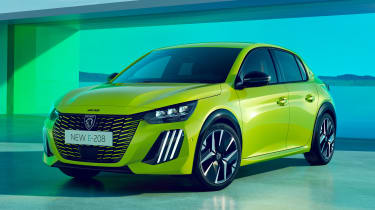
As is the way these days, the 208 gets a subtly updated look with new lights and a new grille, plus new engines and added technology. There’s a range boost for the electric version, which we’ve covered separately in our e-208 review.
Peugeot says the new look is inspired by the 9X8 Hypercar and is similar to the one seen on the revised Peugeot 508 saloon and SW estate. The claw-like daytime running lights have been pushed sideways to give the car a broader appearance.
All models get the new Peugeot badge, plus a body-coloured grille that also extends outwards to further emphasise that stockier stance. Tweaks to the rear aren’t as extensive, but a new light signature apparently gives the car a “more commanding rear view” according to its maker.
There are two new colours: Agueda Yellow and Selenium Grey, and all models now feature gloss black door mirrors. There are two new alloy wheel designs, inspired by those offered on the latest Peugeot 408.
Inside, the big news is the revised i-Cockpit system, which Peugeot says is “even more advanced, connected and ergonomic” than before. Comprising a 10-inch digital instrument cluster on Allure and GT versions, the latter gets a customisable 3D design.
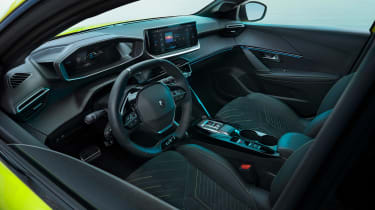
All models – including the base Active – now get an additional 10-inch central touchscreen with Apple CarPlay and Android Auto. As with higher-spec versions of the mechanically similar Citroen C4, the 208 Allure and GT get a high-definition display paired with the brand’s i-Connect infotainment system.
Other interior changes include eight-colour ambient lighting, more powerful wireless phone charging and new USB-C sockets. There’s a new gear lever for models fitted with the five or six-speed manual transmission, while automatic versions retain the ‘e-Toggle’ design introduced in 2022.
Under the bonnet, Peugeot is offering two new mild-hybrid engine options: the Hybrid 100 and Hybrid 136. The maker says these motors benefit from extra torque at low revs and bring up to 15% lower fuel consumption; in urban driving, the Hybrid 136 can allegedly operate in EV mode “more than 50%” of the time.
Conventional PureTech 75 and PureTech 100 petrol models remain, both of which get a manual gearbox as standard. Prices for all models will be announced nearer the car’s launch in October.

